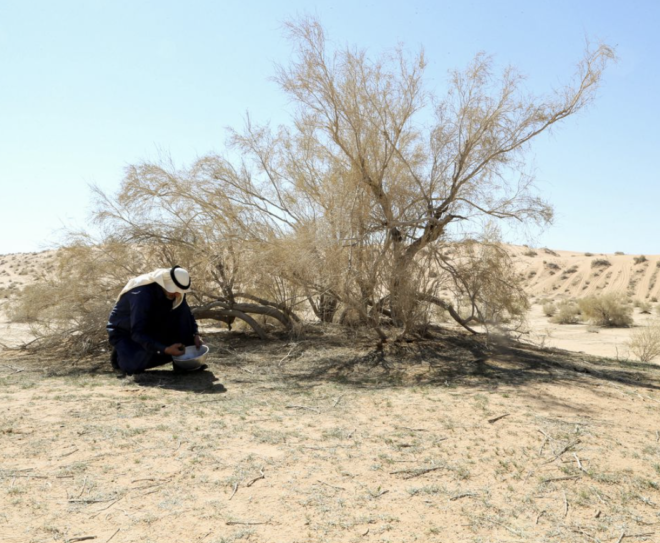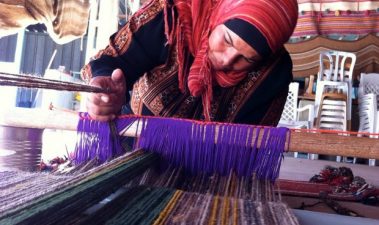Africa is getting its Great Green Wall, meanwhile Saudi Arabia is also suffering from climate change-induced draught and is starting to do something about it by planting more local trees that love the desert. The country is looking to a traditional tree used by the Bedouins to stop desertification. It’s called the saxaul tree and what’s great about it is that like how pine tree seeds open by fire, the saxaul tree seeds open when it’s extra hot and dry.
Environmental activist Abdullah Abduljabar sees these trees as silver lining for deserts, as reported in Reuters. And beyond slowing desertification by holding back the sand, the saxaul trees, (known in Arabic as Al-Ghadha or Etsion Parsi in Hebrew), provides firewood, food for animals plus shade and medicine for Bedouins who still live in the wild deserts of Saudi Arabia, Jordan, Israel, and Sinai.

Saudi Arabian mangrove forests can help mitigate climate change
Our writer Saeb in Jordan wrote in depth here on the wisdom inside Bedouin folk medicine and traditions.

Bedouin medicine by the Desert Daughter.
Abduljabar, vice-president of the Al-Ghadha environmental association, will plant 250,000 of these trees in Saudi Arabia as a way to improve environmental stability in Saudi Arabia. The Saudi government will provide the funds for the trees.
It’s all part of mangrove reforestation and an ambitious plan to plant 10 billion trees in the next few decades. Back in 2014 we reported how one woman was pioneering the idea of saving mangroves in Saudi Arabia. Give it a read.
The country also plans to work with other Arab states to plant an additional 40 billion trees across the Middle East, the Reuters report explores:
“Many Middle Eastern countries are suffering from rising temperatures and longer and more frequent droughts, placing pressure on water supplies and food production. The saxaul can survive for months without a drop of water and thrives in particularly harsh environments where temperatures can soar to 58 degrees Celsius (136 F).”
“The Gulf is one of the hottest places on earth. The Unaizah park last year was recognised by Guinness World Records as the world’s largest saxaul botanic garden, stretching over 172 sq km (66.41 sq miles). On a recent visit, an expanse of saxaul trees stretched to the horizon, enlivening the desert as wind blew through their needle-like leaves.
“The saxaul tree has many qualities, one of the most important ones is that it doesn’t need a lot of water,” said Al-Ghadha association president Majed Alsolaim, as he walked in the park while holding the Guinness certificate in his hands. “That’s why people in Unaizah have taken care of it (in order for it) to become an environmental symbol for this region.”
Saxaul trees typically grow one to four metres high and are indigenous to the deserts of Saudi Arabia, especially in places where the sand is thicker. The wood from these trees can be used to make both furniture and glue, and the tree itself has medicinal uses.
Its latin name is Haloxylon persicum, the white saxaul, is a small tree belonging to the family Amaranthaceae. Its range is Western Asia, including Israel, Egypt, Sinai, Iraq, Saudi Arabia, Iran, Oman, UAE, Afghanistan, and Pakistan, to Central Asia.
To sum up, we like the approach Saudi Arabia is taking (they could reverse the destruction seen in this Atlas of the Arab world), but take note: if you cut a tree in the Kingdom: it could land you 10 years in jail.




